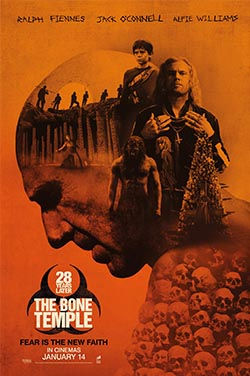All Quiet On The Western Front Movie Review
- Rob Cain

- Oct 29, 2022
- 3 min read

Released: 28th October 2022 (Netflix)
Length: 147 Minutes
Certificate: 15
Director: Edward Berger
Starring: Daniel Brühl, Felix Kammerer, Albrecht Schuch, Aaron Hilmer, Adrian Grünewald, Edin Hasanovic and Devid Striesow
Of the many anti-war films, All Quiet On The Western Front from 1930 is perhaps the biggest pioneer. For the time, it was a staggering look at what was the most destructive conflict ever fought. Nearly a century later and a modern update has arrived from Germany. While it does nail the big picture, I wasn’t fully invested in this remake.

In 1916, German student Paul Bäumer (Felix Kammerer) and his friends lie about their age to join the army; filled with tales of glory and heroism they head to the western front and experience the true horrors of warfare. The story is told from three main perspectives; the soldiers in the trenches, the ruthless General Friedrichs (Devid Striesow) who orders them to their deaths and the politician Matthias Erzberger (Daniel Brühl) who attempts to bring the war to an end. All of these are well presented, but problems arise when it comes to both adaptation and pacing. The opening feels quite rushed, skipping over training and much of the background detail of the setting. As a result, the shift in the soldier mind-sets is very abrupt, rather than a slower degeneration of their ideals. Some contextual sequences from the original book are also absent, such as Paul returning home on leave and finding a deeply misguided attitude from the civilian populous. Including these moments would have enhanced the feeling of pointlessness that hung over the war. The film is at its best when it slows down and lets the horrors linger; when Paul stabs a French soldier and stays put in the hole, watching the man slowly die, it’s brutal and gut-wrenching. When it needs to go beyond that, the 2022 version comes up short.

The three perspectives give way to a variety of solid performances, though in terms of depth some will be left wanting. Felix Kammerer, Albrecht Schuch, Aaron Hilmer, Adrian Grünewald and Edin Hasanovic play the soldiers from various walks of life; they are all incredibly committed to conveying the terror they experience which only rises as the film goes on. The scenes with Erzberger are laced with intrigue; as a politician he’s torn between ending the war and accepting the brutal terms of his opponent, adding a new angle to the proceedings. Finally, General Friedrichs represents the war’s disdainful side, older men in their fancy uniforms who barely took part in the fighting themselves; he emphasises the senseless nationalism that drove millions to die needlessly. The film does dedicate time to showing the backstories of the characters, particularly what they plan on doing when the war ends, but because the story heads into battle so quickly, the camaraderie isn’t given enough time to grow. Every passing that follows does have a sense of tragic pathos, but the bonds between the characters needed to be stronger. What’s missing is a sense of introspection that grows with every atrocity they witness.

Trench warfare and its overwhelming violence is the centrepiece of the production; thanks to modern effects and set designs, the western front is recreated in brilliant detail. The combat is gruesome and merciless, especially a desperate struggle between French tanks and regular infantry. The muddy, disease-ridden battlefield has rarely looked so hideous and the film takes a couple of moments to show the grisly clean-up process, collecting dog tags from the fallen. A grim and bleak atmosphere lingers on and the film also distinguishes the German and French armies through detailed costume and prop work. This is contrasted with many natural shots of the landscape, forests that haven’t been blasted to pieces and still survive amongst the chaos. Despite the unfiltered lens, there are some questionable choices for the presentation; the soundtrack features a heavy use of synths, building up the ominous approach of battle. It’s effective for the film’s climax, but ends up being used too frequently.
The modern update of All Quiet On The Western Front feels very authentic and faithful to real-world events, but in terms of tone and storytelling it could have gone all in for its depiction of nihilism and futility. With multiple changes from the book and some discrepancies with presentation, it isn’t able to fully engage. It’s worth watching to witness how horrific the conflict was, even if it doesn’t match the ruthless calibre of its contemporaries.
Rating: 3.5/5 Stars (Good)










Comments